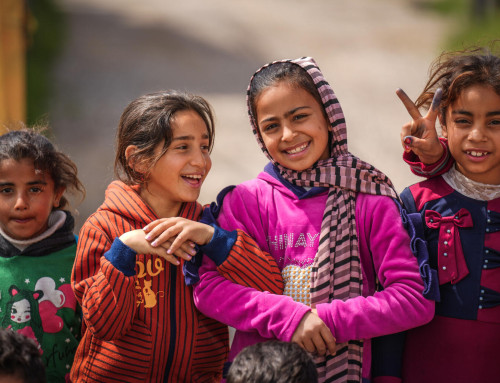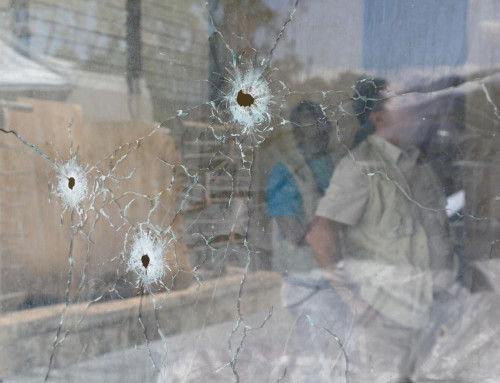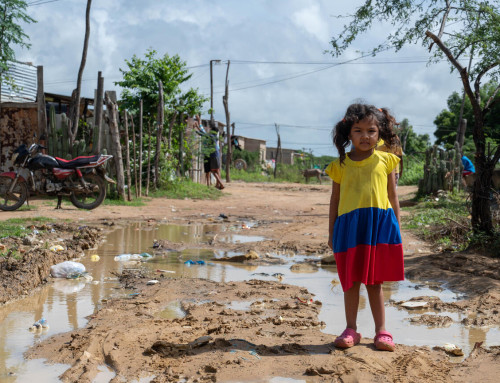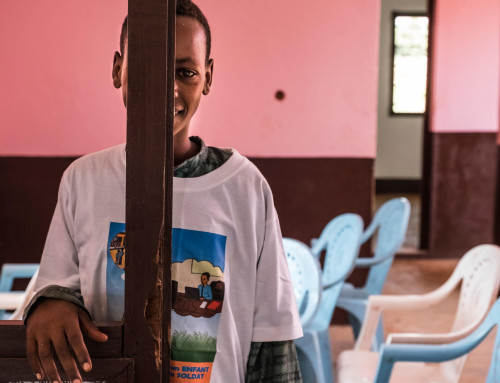Colombo, 13 November 2006 – Allan Rock, the Special Advisor to the United Nations Special Representative for Children and Armed Conflict on Sri Lanka, has concluded his 10 day mission to the country. During those ten days, the mission visited Colombo, Ampara, Batticaloa, Kilinochchi and Jaffna districts. The Mission enjoyed the full cooperation of the Sri Lankan government and met with all parties concerned with the ongoing conflict. In his meeting today with President Rajapakse, the Special Advisor expressed his appreciation for the extensive efforts made by the Government of Sri Lanka to facilitate his visit and access to all areas.
The purpose of Mr. Rock's visit was to ascertain first-hand the situation on the ground, mainly in the North and East, with a particular focus on compliance with the Action Plan for Children Affected by Conflict. The Action Plan was endorsed by the Government and the LTTE following their commitment during peace talks in 2002 and 2003 to work with UNICEF and the Government to end the recruitment of children and to release under-age recruits in their ranks.
The mission's initial findings reveal that the LTTE has not complied with its commitments under the Action Plan to stop child recruitment and release all the children within their ranks. Under-age recruitment continues and the LTTE have yet to release several hundred children as verified by UNICEF.
The mission also found that the so-called Karuna faction continues to abduct children in government-controlled areas of the East, particularly Batticaloa district. Since May of this year, 135 cases of under-age recruitment by abduction have been reported to UNICEF, with evidence that this trend is accelerating.
The mission also discovered a disturbing development involving the Karuna abductions. It found strong and credible evidence that certain elements of the government security forces are supporting and sometimes participating in the abductions and forced recruitment of children by the Karuna faction.
The mission met with the parents of many of the abducted children in Batticaloa district. As a result, it learned of eye-witness evidence that links the Karuna faction abductions to certain government elements. Based on the evidence as a whole, the mission concluded that some government security forces are actively participating in these criminal acts.
Apart from the issues of child recruitment and abductions, the mission also observed the deteriorating humanitarian situation in certain areas of the North and East. During his visits to Vaharai and Jaffna, Mr. Rock saw first hand the fear, isolation and critical unmet needs of IDP children there.
The Special Advisor met with the leadership of the Muslim Community in Batticaloa and elsewhere, and learned of their feelings of isolation and vulnerability. The mission concluded that special efforts should be made to acknowledge the rights and needs of the Muslim Community.
With respect to attacks on civilian areas, the mission called on all parties to respect their obligations under International Humanitarian Law.
In the case of LTTE, the mission reminded it of its obligation to ensure that military assets are not placed in areas where civilians, especially children, can be at risk. It also called on the LTTE not to engage in the use of civilians as human shields.
With respect to the Government, the Mission reminded it that it has a responsibility to ensure that no civilians are targeted in military operations.
On these various issues, Mr. Rock sought and received several assurances and commitments by the parties involved.
The LTTE gave him assurances that they would work with UNICEF, commencing immediately, to accelerate the release from their ranks of all children, with the objective of completing that process by January 1, 2007. They also committed to better training for their military commanders in relation to recruitment, and a process of discipline for those who do not comply.
The Tamil Makkal Viduthalai Pulikal (TMVP), on behalf of its military wing Karuna, undertook to publish formal policy statements forbidding under-age recruitment, and to release any children who may now be in its ranks. The TMVP agreed to work with UNICEF in an effort to trace the whereabouts and arrange the release of those abducted children whose families have complained to UNICEF.
Mr. Rock also received assurances from President Rajapakse concerning the allegations that elements of the Sri Lankan security forces have been complicit with the Karuna faction in its child recruitment, and that they participated in or facilitated child abductions. The President made clear to Mr.Rock that he will order an immediate and thorough investigation to determine whether such things have occurred and, should the evidence support that conclusion, he will take action to hold accountable those who are responsible.
The Special Advisor welcomes all such assurances and will seek concrete evidence of compliance by all parties before the submission of his formal written report to the Security Council in January next year.
"It is increasingly clear that children are at risk from all sides," said Mr. Rock. "It is crucial that ways be found to monitor and protect their rights and interests. Wherever I traveled, I saw with my own eyes that systems meant to safeguard children's rights are either deteriorating or absent. It is apparent that there is an urgent need for an independent monitoring capacity to ensure that children affected by the conflict are protected" stated Mr.Rock.





